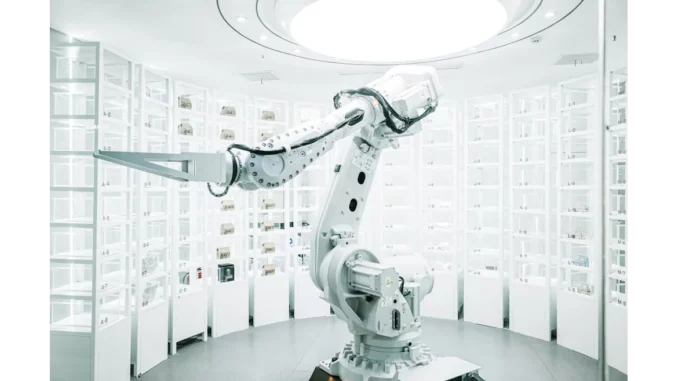
The emergence of generative AI technology is set to revolutionise the medical device industry fundamentally. By enabling the creation of innovative, safe, and secure devices, generative AI heralds a new era of enhanced healthcare outcomes. This transformation begins in the pre-market phase, where AI significantly influences the design and development of medical devices. Utilising advanced algorithms, generative AI swiftly generates design prototypes that meet rigorous safety and efficacy standards, while also improving the verification and validation of patient needs.
The pre-market phase benefits remarkably from generative AI’s capability to analyse extensive datasets, encompassing patient records, clinical trial outcomes, and existing device performance metrics. This data-driven approach facilitates the generation of optimised design prototypes, dramatically reducing the development timeline from years to mere months. Furthermore, it enhances the verification and validation processes for both clinical and security user needs, ensuring that devices are well-suited to their intended functions.
Generative AI’s contribution extends beyond accelerating development. It can simulate a variety of scenarios to anticipate device performance, identify potential risks, and ensure compliance with regulatory standards before any physical prototypes are produced. This proactive methodology mitigates risks early in the development cycle, thereby increasing the success rate of new devices and enhancing their security posture. By addressing issues before they manifest physically, AI fosters a safer, more efficient development process.
Moreover, generative AI plays a pivotal role in regulatory compliance. It can automate numerous regulatory processes, ensuring that devices adhere to necessary standards more effectively. This not only expedites development but also alleviates the regulatory burden on manufacturers. By streamlining compliance, generative AI accelerates the time-to-market for new medical devices, allowing patients to access innovative technologies more swiftly.
However, the integration of generative AI into medical device development is not without challenges. A primary concern is ensuring the transparency and explainability of AI algorithms, as regulatory bodies require a clear understanding of AI decision-making processes to guarantee patient safety. Additionally, the integration of AI into existing clinical workflows can be complex, necessitating collaboration among AI developers, healthcare professionals, and regulatory agencies. Furthermore, data privacy and security are critical, given that AI systems rely on vast amounts of sensitive Patient Health Information (PHI) governed by HIPAA and other compliance regulations. Ensuring robust security and compliance is essential to protect patient data and maintain trust.
The potential of generative AI in medical device development is vast. It enables the creation of highly personalised devices tailored to individual patient anatomies, improving treatment outcomes and reducing complications. The technology also facilitates rapid iteration and testing of device prototypes, supporting next-generation verification and validation processes at scale. This accelerates innovation and brings new devices to market more quickly. AI-driven insights further enhance post-market surveillance, fostering continuous improvements in device safety and performance. The ongoing collection of performance data refines AI models and strengthens security measures, ultimately contributing to improved healthcare delivery and patient care.
As AI technology evolves, its impact on the medical device industry will be transformative. Generative AI holds immense promise for developing safe, secure, and highly customised medical devices. By navigating the challenges and capitalising on the opportunities it presents, the medical device industry can leverage AI to enhance patient outcomes and drive innovation in healthcare. This technology stands to significantly improve the precision, personalisation, and security of medical devices, tailoring them to individual patient needs more effectively than ever before. As the industry continues to advance, generative AI will undoubtedly play a central role in shaping the future of medical device development, ensuring better health outcomes and more efficient healthcare systems.


Be the first to comment